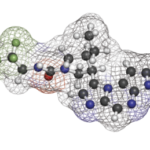As the primary endpoints, researchers measured the proportion of patients who achieved an ACR20 response (i.e., an improvement of 20% in the number of tender and number of swollen joints, and a 20% improvement in three of the following five criteria: patient global assessment, physician global assessment, functional ability measure, visual analog pain scale, and erythrocyte sedimentation rate or C-reactive protein) and achieved a Disease Activity Score for 28 joints (DAS28-CRP) of less than 2.6 vs. placebo at week 12. Researchers also examined inhibition of radiographic progression at week 26, and at week 14 in rescued patients.
Physical exams, vital signs, electrocardiogram and lab tests were monitored during the study for safety assessment. Data on investigator-reported adverse events were also collected and summarized through week 26. Additionally, Rheumatology Common Toxicity Criteria v.2.0 were used to grade adverse events and lab changes other than creatine phosphokinase and creatinine. An independent, external cardiovascular adjudication committee blindly adjudicated reported cardiovascular events.
Results
Seventy-one percent of upadacitinibtreated patients achieved an ACR20 response by week 12, compared with 36% of placebo-treated patients and 63% of adalimumab-treated patients. Compared with the placebo and adalimumab groups, the upadacitinib group had statistically better ACR50 and ACR70 responses. A significantly larger proportion of upadacitinib-treated patients achieved DAS28-CRP of 3.2 or less and a Clinical Disease Activity Index (CDAI) of 10 or less vs. placebo-treated patients.
At week 26, upadacitinib also demonstrated other advantages, such as low disease activity and remission, greater improvements for quality of life and reduced radiographic progression.
While on the original, randomized study treatment, the proportion of patients who experienced adverse events was higher in the adalimumab and upadacitinib groups compared with placebo. Similar proportions of patients had serious infections with upadacitinib (1.8%) and adalimumab (1.5%). Nine patients had opportunistic infections (placebo: 0.6%; upadacitinib: 0.6%; adalimumab: 0.3%). Five reported adjudicated major adverse cardiovascular events—none with upadacitinib, two with adalimumab and three with placebo. Eight patients had cases of herpes zoster, a greater number in the upadacitinib group than in the placebo and adalimumab groups.
Six patients experienced venous thromboembolic events (VTEs), one with placebo, two with upadacitinib and three with adalimumab. All six patients had preexisting risk factors.
Four deaths were reported: none with upadacitinib; two with placebo related to cardiovascular health and Pneumocystis jirovecii pneumonia; and two on adalimumab linked to craniocerebral injury in a car accident and cardiovascular death related to left ventricular failure.



